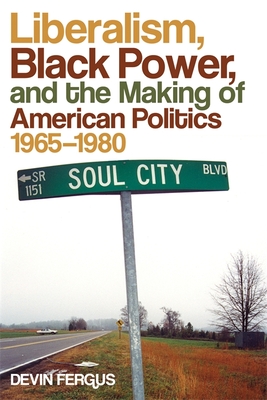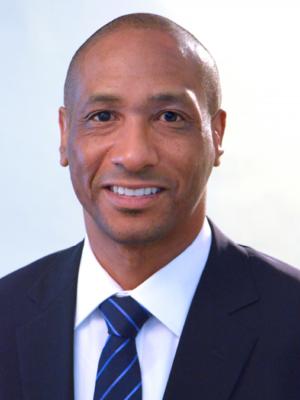

 University of Georgia Press
University of Georgia Press
Liberalism, Black Power, and the Making of American Politics, 1965-1980


Key Metrics
- Devin Fergus
- University of Georgia Press
- Hardcover
- 9780820333236
- 9.1 X 6.1 X 1.1 inches
- 1.4 pounds
- Political Science > Political Ideologies - Nationalism & Patriotism
- English
 Secure Transaction
Secure TransactionBook Description
In this pioneering exploration of the interplay between liberalism and black nationalism, Devin Fergus returns to the tumultuous era of Johnson, Nixon, Carter, and Helms and challenges us to see familiar political developments through a new lens. What if the liberal coalition, instead of being torn apart by the demands of Black Power, actually engaged in a productive relationship with radical upstarts, absorbing black separatists into the political mainstream and keeping them from a more violent path? What if the New Right arose not only in response to Great Society Democrats but, as significantly, in reaction to Republican moderates who sought compromise with black nationalists through conduits like the Blacks for Nixon movement?
Focusing especially on North Carolina, a progressive southern state and a national center of Black Power activism, Fergus reveals how liberal engagement helped to bring a radical civic ideology back from the brink of political violence and social nihilism. He covers Malcolm X Liberation University and Soul City, two largely forgotten, federally funded black nationalist experiments; the political scene in Winston-Salem, where Black Panthers were elected to office in surprising numbers; and the liberal-nationalist coalition that formed in 1974 to defend Joan Little, a black prisoner who killed a guard she accused of raping her. Throughout, Fergus charts new territory in the study of America's recent past, taking up largely unexplored topics such as the expanding political role of institutions like the ACLU and the Ford Foundation and the emergence of sexual violence as a political issue. He also urges American historians to think globally by drawing comparisons between black nationalism in the United States and other separatist movements around the world.
By 1980, Fergus writes, black radicals and their offspring were more likely to petition Congress than blow it up. That liberals engaged black radicalism at all, however, was enough for New Right insurgents to paint liberalism as an effete, anti-American ideology--a sentiment that has had lasting appeal to significant numbers of voters.
Author Bio
Devin Fergus is the Arvarh E. Strickland Distinguished Professor of History and Black Studies. His research focuses on political economy, policy, and inequality in modern America. Professor Fergus is the author of Land of the Fee (Oxford, 2018) which the explores the hidden costs of rising financial fees at home, school, work, and transportation on wealth and mobility in modern America. A much-anticipated work, Land of the Fee has been called one of the five best books for understanding capitalism today. His current research project examines white-collar crime and the racial wealth gap.
Fergus is guest editor of the special issue Banking without Borders: Culture and Credit in the New Financial World for Kalfou, a journal published by Temple University Press. This special issue examines the impact of four decades of financial deregulation in the US on vulnerable populations, which has increasingly affected the middle class. He has written widely on policy, political economy, and inequality for the New York Times, Washington Post, and the Guardian. Along with Louis Hyman, Bethany Moreton, and Julia Ott, Professor Fergus is also editor of the Columbia Studies in the History of U.S. Capitalism book series published by Columbia University Press.
Professor Fergus has worked closely with several national policy organizations (e.g., Demos, Closing the Racial Wealth Gap Initiative, the Center for Global Policy Solutions, and Prosperity Now) and has presented research to a number of federal entities, including the US Treasury, US Department of Education, the Consumer Financial Protection Bureau, and the Special Master (Kenneth Feinberg) for TARP Executive Compensation. Professor Fergus received his PhD in American history from Columbia University.
Source:
Videos
No Videos
Community reviews
Write a ReviewNo Community reviews